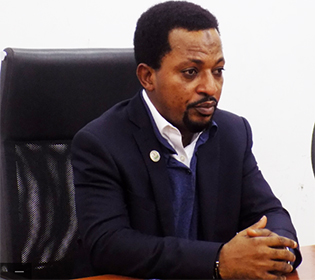
The Vice President, Air and Logistics of the National Association of Government Approved Freight Forwarders (NAGAFF), Segun Musa, has voiced serious concerns about Nigeria’s readiness for effective participation in the African Continental Free Trade Area (AfCFTA).
In a recent interview, Musa underscored the nation’s infrastructural deficits and weak production capacity, cautioning that Nigeria is at risk of becoming a dumping ground for goods from other African countries.
Musa described AfCFTA as a transformative opportunity to boost Nigeria’s economy, but lamented that the country currently has little to offer in exchange for trade. “We have opened AfCFTA for trade liberalization, but unfortunately, Nigeria has nothing to showcase. We are likely to be a dumping country because we have nothing to exchange,” he stated.
He emphasized that sustainable production is essential for any country to benefit from AfCFTA. However, he pointed out that Nigeria lacks critical enablers like stable electricity, advanced technology, dependable infrastructure, and adequate security. “Without these, our participation will be limited to importing goods from other African nations, as we have no competitive advantage to leverage in the continental market,” Musa said.
The NAGAFF Vice President called for immediate government action to enhance local production and strengthen Nigeria’s trade capacity. “We need to start identifying and supporting entrepreneurs in production, provide them with liquidity, and ensure their products meet certification standards for both local and export consumption,” he advised. He also urged regulatory agencies, including the Standards Organisation of Nigeria (SON), to actively promote standardization and bolster local manufacturing capabilities.
Musa criticized the Nigerian government’s approach to AfCFTA implementation, describing it as overly theoretical and lacking practical engagement. “Most of their activities are just talk shows and paper presentations. If the government is serious, they should focus on practical dialogue and strategies to achieve results,” he remarked.
He also accused committees tasked with AfCFTA implementation of failing to engage relevant stakeholders effectively. “To date, there is no seriousness in their approach. We need to move beyond theories to actionable plans that involve all stakeholders,” Musa asserted.
While expressing optimism that Nigeria could still harness AfCFTA’s benefits, Musa urged the government to prioritize local content development, capacity building, and export-readiness initiatives. “AfCFTA is a continuous market, and it is not too late for us to harness its benefits. However, this depends on the government’s interest in ensuring we have something tangible to offer,” he concluded.
The AfCFTA agreement, which became operational in 2021, seeks to establish a single market for goods and services across Africa, thereby enhancing intra-continental trade and economic integration. However, Nigeria’s potential to fully exploit the advantages of this ambitious project remains uncertain without substantial structural reforms and a robust trade strategy.















